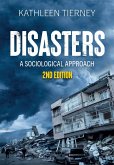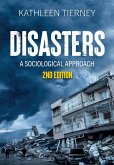"The COVID-19 pandemic inaugurated a state of emergency unprecedented for most Americans. Some could observe this emergency from the relative safety of their homes, working remotely, conducting routine medical appointments over Zoom, and mastering the art of timing our grocery shopping or ordering delivery. But we all watched in horror as those in marginalized communities got sick and died without access to the same privileges, sometimes even at the expense of others; after all, someone had to ship goods from warehouses, someone had to clean the hospital, someone had to shelve and deliver groceries. In this book, sociologist Claire Laurier Decoteau attempts to document and theorize the emergencies of COVID-19, looking to the experiences of Chicagoans and the policies that shaped those experiences. She describes the uneven racial impact of COVID-19 on Black and Latinx Chicagoans as a "crisis within a crisis" caused by a convergence of emergencies: a state of emergency that protects white supremacy and wealth, the slow emergencies racially marginalized populations have faced due to the long-term gutting of care infrastructure and deindustrialization, and the sacrifice "essential workers" were asked to make to protect the US economy. As Decoteau shows, the city's "racial equity" project attempted to manage these converging emergencies by building up epistemic infrastructure and manipulating epidemiological data. City officials used data to determine which communities would be given scarce resources, but once positivity rates declined, resources were retracted and redistributed elsewhere. As a result, the city economized its approach to the pandemic and failed to attend to the structural determinants of poor health. Decoteau discusses how the city focused on the urgent and spectacular, while ignoring or dismissing the intransigent and mundane phenomenon of long-term disinvestment in marginalized communities, including healthcare resources. The city invested in data infrastructure to guide scarce resource distribution, but this abstracted citizens from their structural conditions and failed to address core vulnerabilities. Decoteau makes clear that the emergencies precipitated by COVID-19 long predated the pandemic, and that we will live with their compounding crises if we do not tackle their structural underpinnings"--
Hinweis: Dieser Artikel kann nur an eine deutsche Lieferadresse ausgeliefert werden.
Hinweis: Dieser Artikel kann nur an eine deutsche Lieferadresse ausgeliefert werden.








